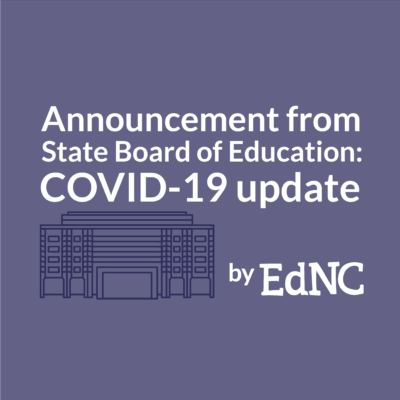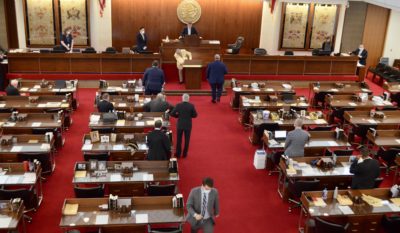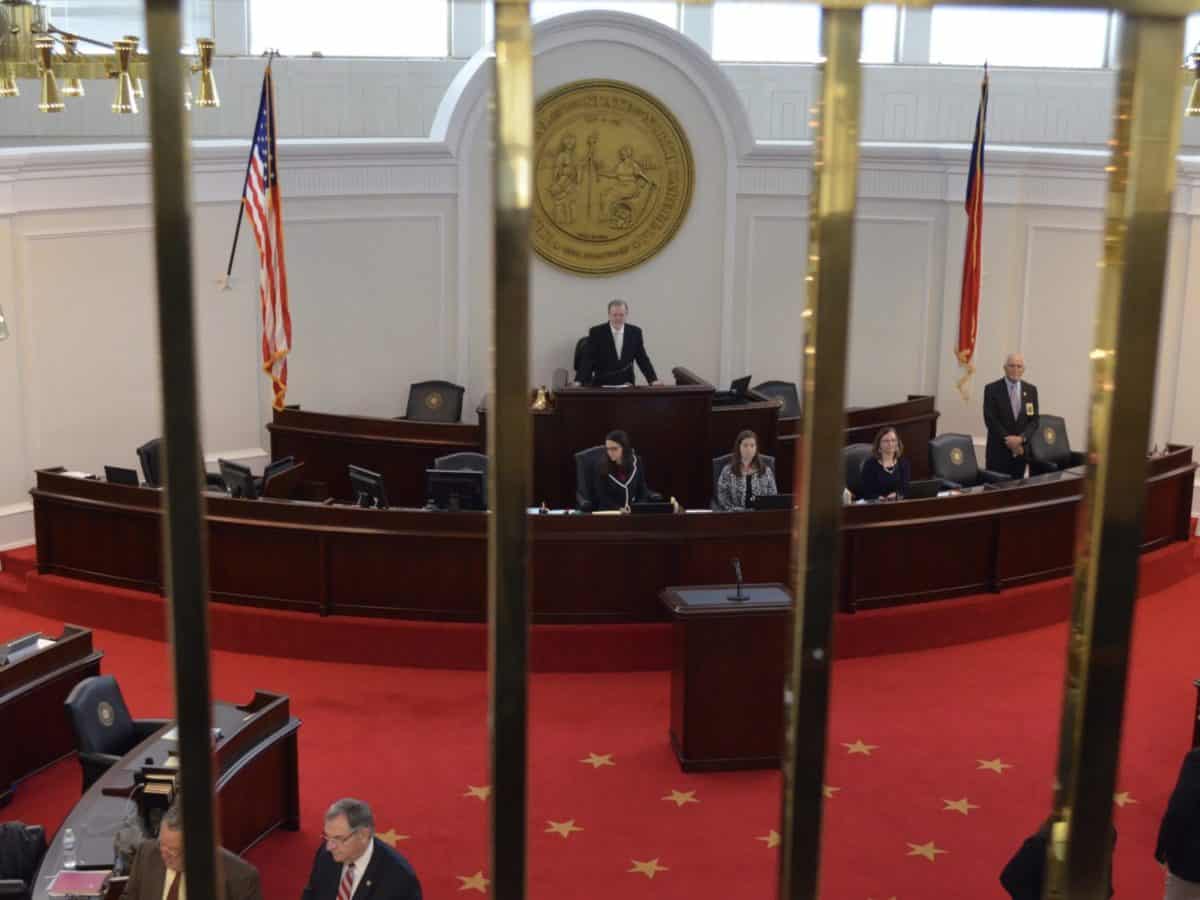

The General Assembly passed a COVID-19 relief package on Saturday, May 2 that includes about $231.6 million for K-12 education and $25 million for community colleges. There were no votes against the package in either chamber.
Earlier this week, both the House and Senate passed their own separate spending plans. The compromise package passed today was the result of negotiations between the two chambers to come to a final agreement on how much to spend. That final agreement amounts to roughly $1.6 billion.
The money appropriated in the final spending plan comes from the federal Coronavirus Aid, Relief, and Economic Security (CARES) Act. The CARES Act has so far given North Carolina about $3.5 billion to be used by the legislature to combat COVID-19.
When it came to education, the two chambers had vastly different spending amounts in mind. The House originally approved an appropriations bill with about $291 million for K-12 education while the Senate passed a spending plan with about $148 million for the state’s schools.
The low number from the Senate was, in part, because of the fact that the CARES Act has allocated money directly to school districts and the governor for K-12 education, and Senate Republicans thought the money at lawmakers’ discretion should be used for items not already covered by the CARES Act.
Districts will receive $396.3 million from the federal CARES Act and the governor is getting $95.6 million to use for education-related purposes. This is separate from the money being allocated by the General Assembly.
“It is not prudent to use the CARES Act funding, which may be the most flexible assistance we have, to pay for an area already covered by a different federal funding stream,” wrote Senator Harry Brown, R-Onslow, chair of the Senate appropriations committee, in a press release this week.
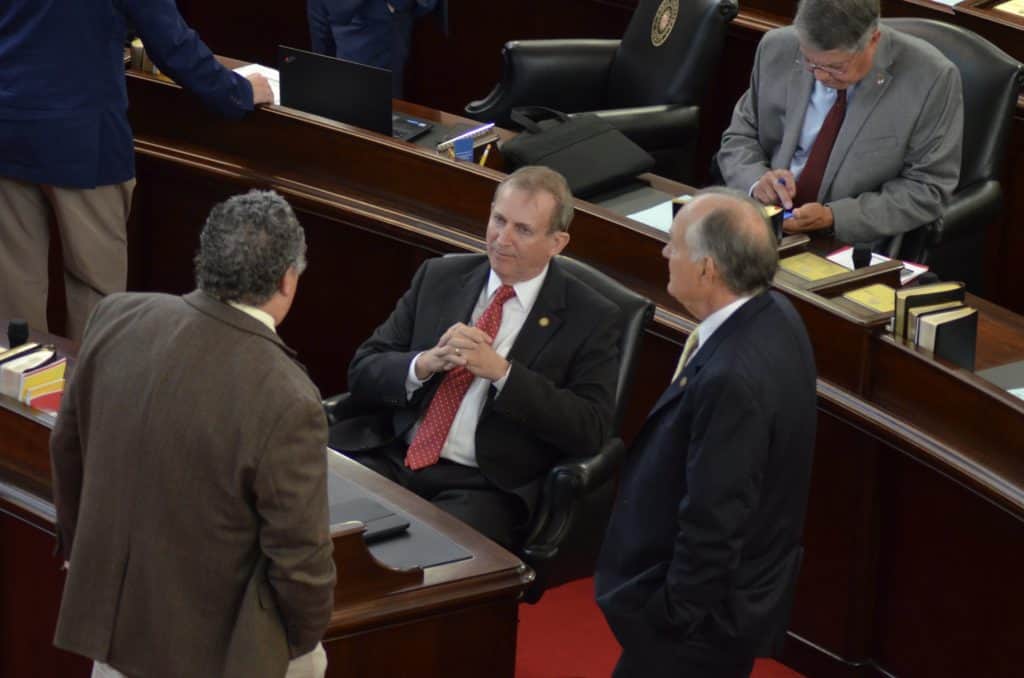

Ultimately, the amount of money in the final spending package is closer to what the House wanted, though still far from the legislative ask of the state Department of Public Instruction (DPI) and lower than the recommendations of Gov. Roy Cooper.
DPI and the State Board of Education asked for about $380 million in their request to the legislature, and the governor’s plan included $78 million for school nutrition and $243 million for public schools for things like enhancing remote teaching and summer learning programs.
Here are the K-12 spending provisions from the final COVID-19 relief package:
- $75 million for school nutrition
- $1 million to improve internet connectivity for students by providing Wi-Fi in school buses
- $11 million to improve internet connectivity for students by providing community and home mobile internet access
- $30 million for the purchase of computers or electronic devices for students
- $5 million for purchase of computer or electronic devices for school staff
- $4.5 million for cybersecurity
- $10 million for school health support personnel
- $70 million for summer learning programs
- $1.488 million to help and support districts with remote instruction
- $3 million for nondigital remote instruction
- $15 million for grants for extended school year services or future services for exceptional children
- $660,029 for Governor Morehead School for the Blind, Eastern North Carolina School for the Deaf, and the North Carolina School for the Deaf for school nutrition, cleaning, and remote learning resources
- $5 million for Extended Learning and Integrated Student Supports Competitive Grant Program. The program funds “high-quality, independently validated extended learning and integrated student support service programs for at-risk students whose learning has been negatively affected by COVID-19.”
The differences between what is in the final bill and what was in the more-generous House plan appear to be differences mostly in amounts rather than content. The North Carolina Association of School Administrators posted this helpful breakdown of differences in funding between different plans and legislative asks to Twitter today.
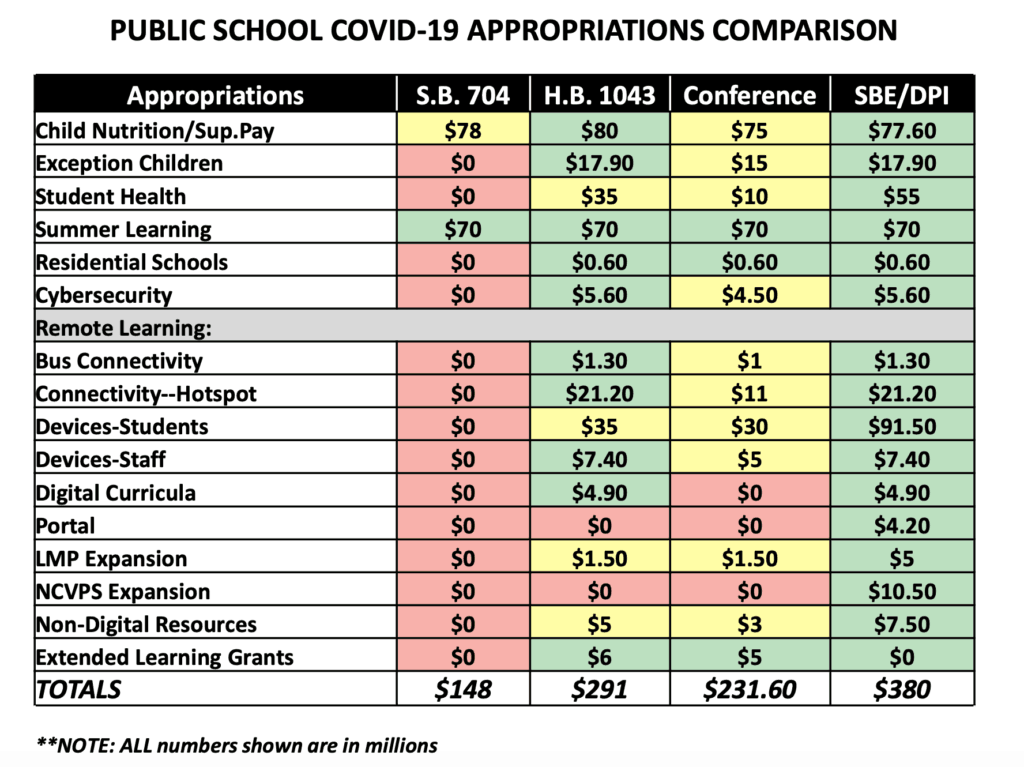

The final compromise package also includes $25 million for the community college system office to distribute to community colleges. The money is to be used for five purposes:
- “To enhance online learning capacity and cover increased costs associated with moving to online education for students.”
- “To cover necessary eligible expenses for resources and supports for faculty and staff.”
- “To provide Small Business Center counselors for small business needs.”
- “To cover expenses for expanded demands on information technology, including devices for campuses in rural areas.”
- “To provide facility sanitation and other necessary eligible expenses for services for ongoing campus operations.”
The package was divided into a money bill and a specials provisions bill, both voted on separately by both chambers.
Here is a summary of the money bill:
Here is the actual bill:
The special provisions bill includes waivers necessary for K-12 education given the fact that schools have been closed for in-person instruction because of COVID-19. Included in the final legislation is language that would waive requirements related to testing, school performance grades, the Innovative School District, summer reading camps, third-grade retention, educator preparation programs, teacher licensure, and more. A delay in K-3 class size restrictions originally in the House appropriations bill did not make it into the final compromise bill.
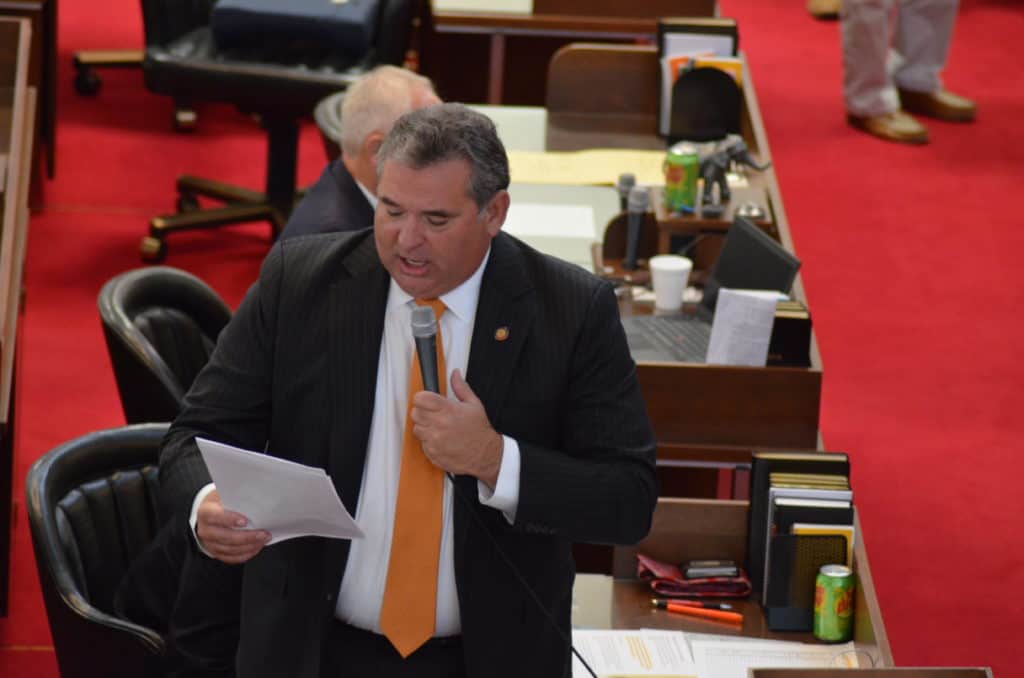

Rep. David Lewis, R-Harnett, presented the special provisions bill on the floor of the House and said that if the K-3 class size restriction delay is necessary, it can be addressed when legislators return.
Here is a summary of the special provisions:
Here is the bill:
The bills now go to the governor for his signature. The General Assembly still has more federal CARES Act money left to spend. House Speaker Tim Moore, R-Cleveland, told House members they should expect to be back the week of May 18.


